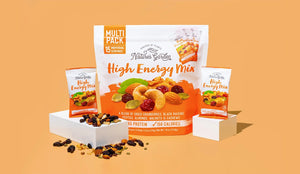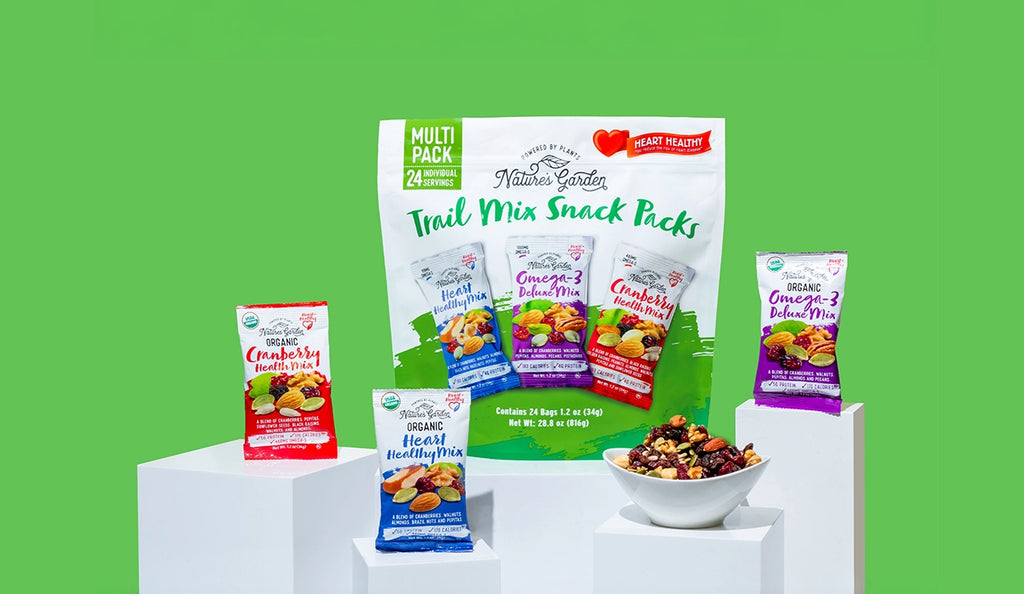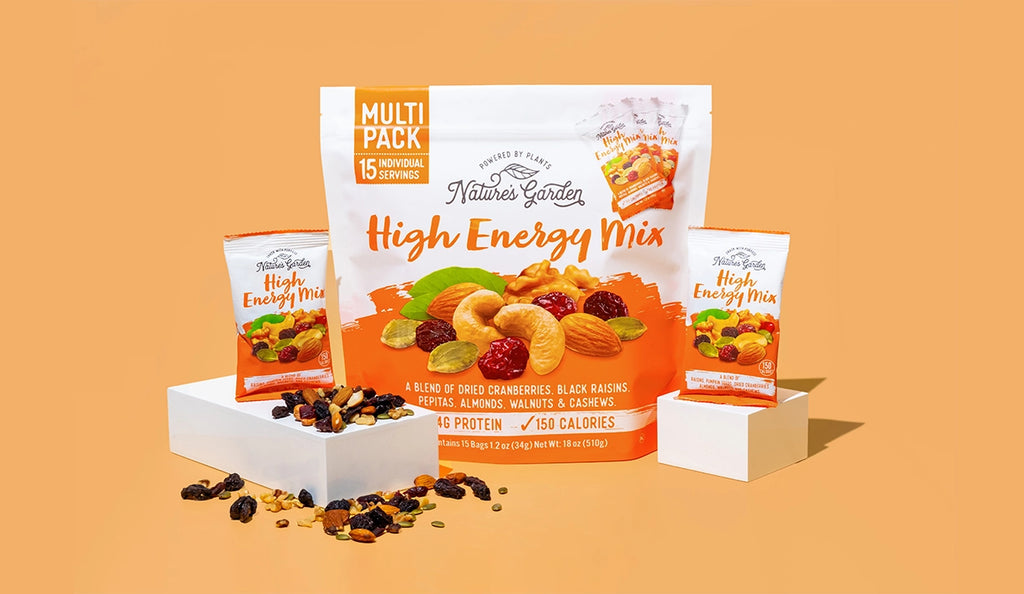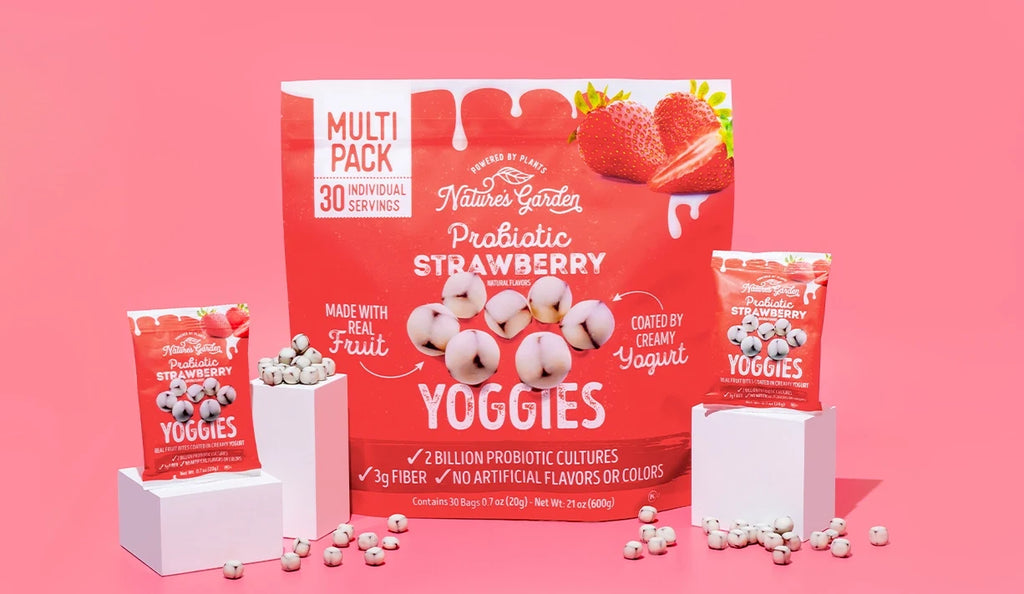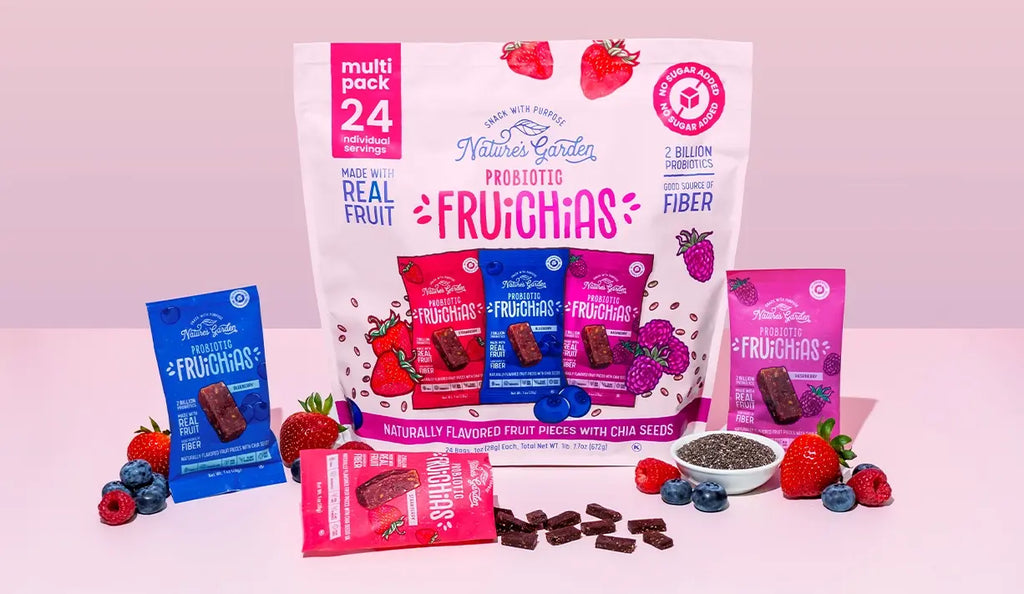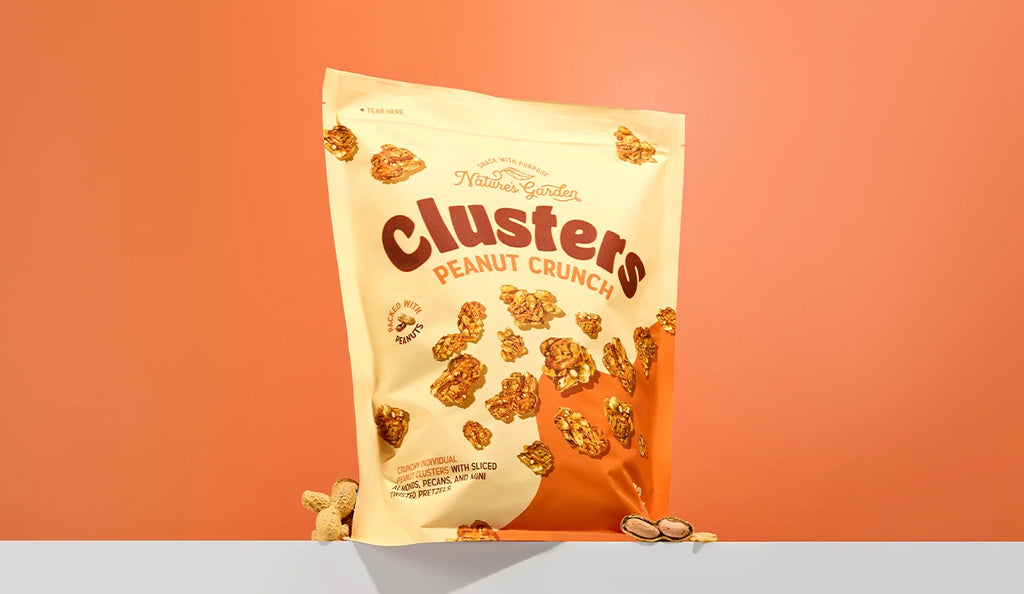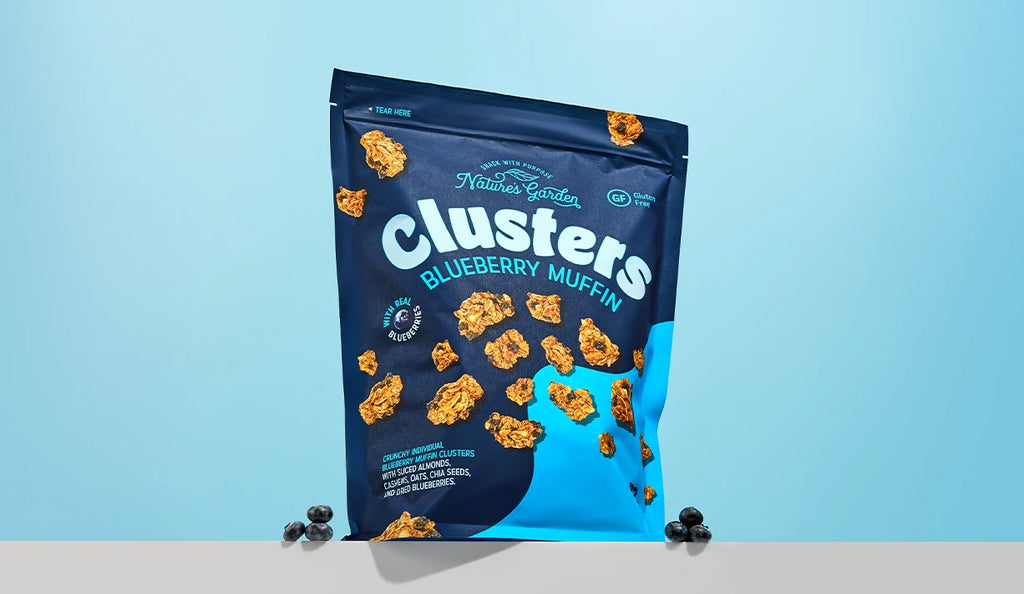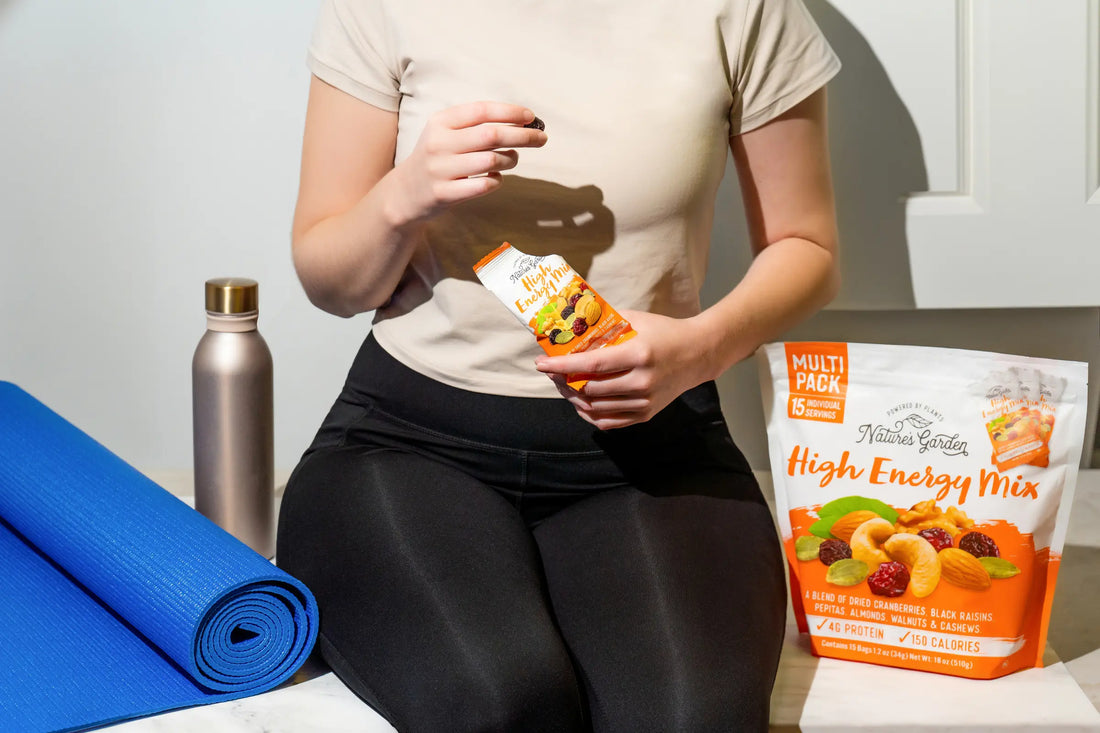Regarding nutrition and fitness, protein has gained much attention over the years for being the key to fitness and health success. Whether you are an athlete, a recreationally active individual, or just beginning your health journey, protein is a key macronutrient that plays a crucial role in muscle recovery and helping you meet appropriate nutrient needs.
At Nature’s Garden, we strive for balanced nutrition with optimal and functional ingredients. Many of our products including our trail mixes and nut mixes can be great options if you are looking to boost your protein intake! Whether you are hiking, coming from the gym, or feeling a midday slump at work, our snack packs are made to help you snack with a purpose! Guess what? They can also contribute to your total protein intake! In this blog, we will discuss the key components of protein and highlight how healthy snacks can help support your health and fitness goals!
Breaking Down a Key Nutrient: Protein
There are three macronutrients your body needs: carbohydrates, protein, and fats which all have different roles for your body. Protein is an essential macronutrient that every cell in your body needs and is key for optimizing your nutrition and feeling your best while being active. After intense workouts, your muscles undergo stress and tiny tears that need repairing. This is where protein swoops in to save the day! When you consume protein post-workout, it not only helps mend those micro-tears but also helps to build new muscle fibers which strengthen your muscles over time. This process is vital for anyone looking to enhance their strength, boost performance, or simply feel better in their daily activities. Many studies have widely reported that consuming protein directly after resistance exercise is an effective way to promote positive muscle protein balance and speed up recovery! But how do we know how much protein to consume?
How much Protein do I Need?
Are you wondering how much protein you need in a day?
For most people looking to increase protein for general fitness levels, 0.8 to 1.0 g of protein kg/day can generally be enough to meet your needs. However, competitive athletes or those who engage in more vigorous training on a regular basis will require more protein than this to respond to the stimulus this intense exercise provides. The recommendations for endurance athletes are 1.2-1.4 g protein/kg of weight/day and for strength-training athletes, it is recommended to consume 1.6-2.0 g protein/kg of weight/day. Several research studies have reported that protein intakes higher than 1.5 g of protein/kg body weight/day have no additional benefits or setbacks for performance and recovery.
It is important to keep in mind that protein needs will be different based on age, sex, and even some medical condition; it is best to consult with a Registered Dietitian if you have concerns or additional questions about your protein intake. Don’t let these numbers give you stress, instead, think of it as an exciting challenge because having the right snack ideas on hand can help you meet your protein goals in no time!
10 High-Protein Snack Ideas to Fuel Your Fitness
Healthy snacking is a great way to effortlessly increase your protein consumption throughout the day. Think of protein-packed snacks as your key to success! They can keep your energy levels up and your cravings at bay, all while contributing to your daily protein requirements.
It is also important to notice what other nutrients you are consuming with protein. According to ACSM’s Nutrition for Exercise Science, protein synthesis and the reduction of protein breakdown through adequate intake is only activated when your body meets adequate energy needs through carbohydrates. So make sure you are also consuming enough total calories throughout the day in addition to your protein intake!
Here are some ideas for satisfying snacks that pack a protein punch:
- Greek yogurt with berries, nuts, and chia seeds
- Whole-grain pita bread with hummus, carrots, and spinach
- Protein smoothie with protein powder, berries, bananas, nut butter and milk of choice
- Hard-boiled eggs on a slice of whole-grain bread
- 1 cup of edamame beans with a side of berries
- 1 slice of whole-grain bread with almond butter, banana, and hemp seeds
- Tofu scramble with kale, mushrooms, and sweet potatoes
- Chia seed pudding with fresh fruit and nuts
- Turkey slices on whole-grain crackers with guacamole
- Avocado toast with cucumbers, spinach and egg whites
Fueling your body with the right nutrients is crucial for recovery and overall health. Including protein-rich snacks in your routine can enhance your performance, keep your energy levels steady, and help you feel satisfied throughout the day. So the next time you’re on the go or finishing up a workout, be sure you are thinking about how to incorporate protein into your post-workout routine! Embrace quick snacks, enjoy what you eat, and continue to stay motivated on your fitness journey. Let’s power up your recovery with the nourishment of protein!
